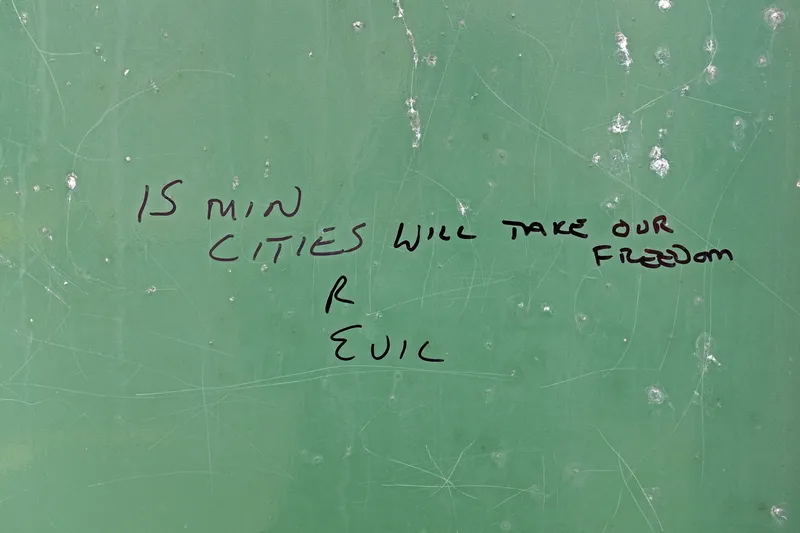
In its latest report, the C40 international cities organisation says that the world did not go far enough in 2022 to mitigate the effects of climate change.
"Against a backdrop of extreme climate events affecting every region of the planet, and geopolitical turbulence which has impacted global energy markets, 2022 did not see the level of climate action that these crises urgently demand," the C40 Annual Report 2022 says.
The global network of nearly 100 city mayors - from São Paulo to Seoul, Accra to Ahmedabad, Beijing to Bogotá, and Milan to Montréal - is "deploying a science-based and collaborative approach to help the world limit global heating to 1.5°C and build healthy, equitable and resilient communities".
Urban mobility and air quality initiatives - such as increasing active travel - are a key part of the network's strategy and the report says there has been a 5% improvement in air quality across C40 cities – so "150 million residents, globally, are now benefitting from cleaner air".
But it also points out: "Nearly every C40 city experiences air pollution levels that exceed the World Health Organisation’s guidelines for clean air."
The report highlights Breathe Warsaw, the largest air quality monitoring system in Europe last year, with a network made up of 165 monitors, to develop a comprehensive air quality database, and design and implement a low-emission zone by 2024.
The Polish city says was inspired by Breathe London, where mayor of London and C40 Cities chair Sadiq Khan expanded the ultra-low emission
zone (Ulez) to cover inner London in October 2021.
Latest data shows that on an average day, 94% of vehicles seen driving in the London zone meet Ulez standards, up from 87% in the weeks before the zone expanded, and up from 39% in February 2017 when changes associated with the Ulez began.
The C40 report says that NO2 concentrations in central London are now estimated to be 44% lower. In August this year, Ulez will be expanded
to cover the whole of Greater London.
In Brazil, Rio de Janeiro announced the city’s (and country’s) first low-emission district, "creating a path to implement an official zero-emission area
by 2030".
Three quarters of C40 cities are now decreasing their per capita emissions at a faster rate than their own countries, while actions such as introducing low-emission zones have tripled in the past decade, "which is vital if global heating is to be kept under 1.5˚C".
October 2022 saw C40 host the World Mayors Summit in Buenos Aires, with 75 C40 mayors and 143 non-C40 cities taking part.
At the Summit, mayors committed to driving the creation of "50 million good, green jobs by 2030" and announced record investment in C40 cities in the Global South, which are now projected to be able to access more than $1 billion to help them adapt to and tackle the climate emergency.
"As we head into 2023, we know we must continue to galvanise action and go further and faster," the C40 report says. "We remain focused on playing our part in halving emissions by 2030 and delivering a greener, safer and more inclusive future for all."










